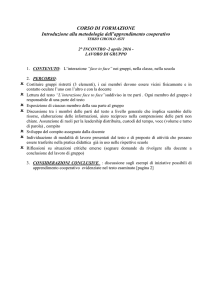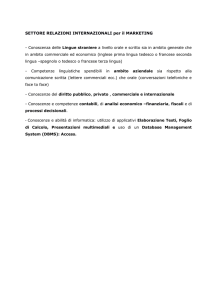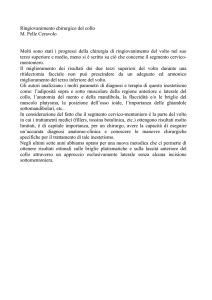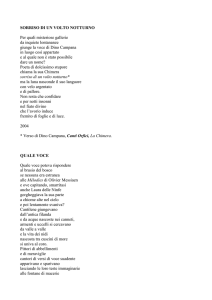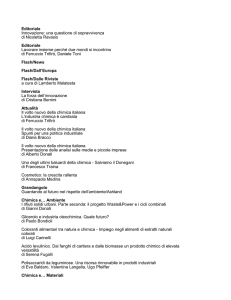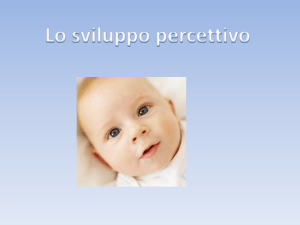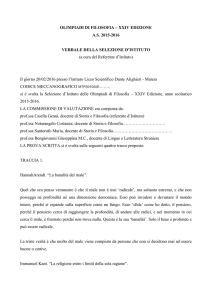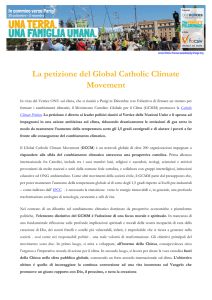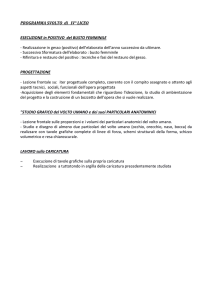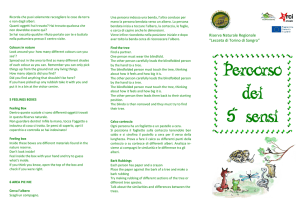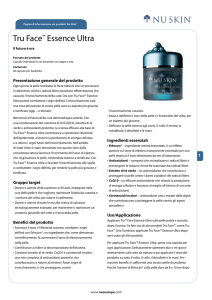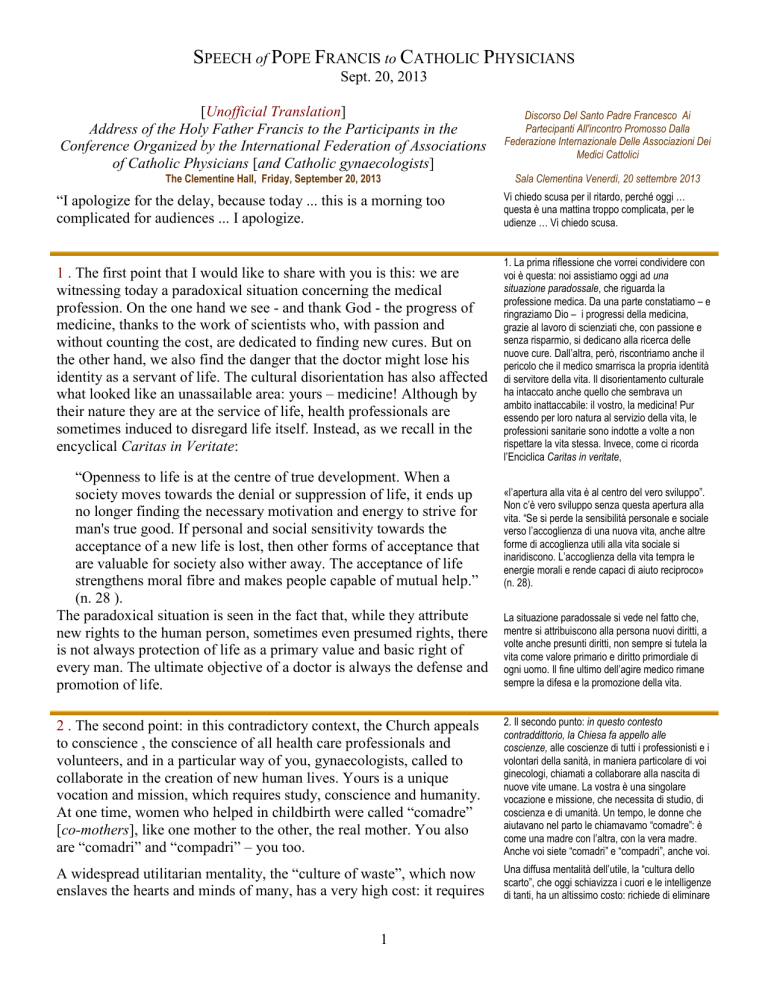
SPEECH of POPE FRANCIS to CATHOLIC PHYSICIANS
Sept. 20, 2013
[Unofficial Translation]
Address of the Holy Father Francis to the Participants in the
Conference Organized by the International Federation of Associations
of Catholic Physicians [and Catholic gynaecologists]
The Clementine Hall, Friday, September 20, 2013
Discorso Del Santo Padre Francesco Ai
Partecipanti All'incontro Promosso Dalla
Federazione Internazionale Delle Associazioni Dei
Medici Cattolici
Sala Clementina Venerdì, 20 settembre 2013
“I apologize for the delay, because today ... this is a morning too
complicated for audiences ... I apologize.
Vi chiedo scusa per il ritardo, perché oggi …
questa è una mattina troppo complicata, per le
udienze … Vi chiedo scusa.
1 . The first point that I would like to share with you is this: we are
witnessing today a paradoxical situation concerning the medical
profession. On the one hand we see - and thank God - the progress of
medicine, thanks to the work of scientists who, with passion and
without counting the cost, are dedicated to finding new cures. But on
the other hand, we also find the danger that the doctor might lose his
identity as a servant of life. The cultural disorientation has also affected
what looked like an unassailable area: yours – medicine! Although by
their nature they are at the service of life, health professionals are
sometimes induced to disregard life itself. Instead, as we recall in the
encyclical Caritas in Veritate:
1. La prima riflessione che vorrei condividere con
voi è questa: noi assistiamo oggi ad una
situazione paradossale, che riguarda la
professione medica. Da una parte constatiamo – e
ringraziamo Dio – i progressi della medicina,
grazie al lavoro di scienziati che, con passione e
senza risparmio, si dedicano alla ricerca delle
nuove cure. Dall’altra, però, riscontriamo anche il
pericolo che il medico smarrisca la propria identità
di servitore della vita. Il disorientamento culturale
ha intaccato anche quello che sembrava un
ambito inattaccabile: il vostro, la medicina! Pur
essendo per loro natura al servizio della vita, le
professioni sanitarie sono indotte a volte a non
rispettare la vita stessa. Invece, come ci ricorda
l’Enciclica Caritas in veritate,
“Openness to life is at the centre of true development. When a
society moves towards the denial or suppression of life, it ends up
no longer finding the necessary motivation and energy to strive for
man's true good. If personal and social sensitivity towards the
acceptance of a new life is lost, then other forms of acceptance that
are valuable for society also wither away. The acceptance of life
strengthens moral fibre and makes people capable of mutual help.”
(n. 28 ).
The paradoxical situation is seen in the fact that, while they attribute
new rights to the human person, sometimes even presumed rights, there
is not always protection of life as a primary value and basic right of
every man. The ultimate objective of a doctor is always the defense and
promotion of life.
«l’apertura alla vita è al centro del vero sviluppo”.
Non c’è vero sviluppo senza questa apertura alla
vita. “Se si perde la sensibilità personale e sociale
verso l’accoglienza di una nuova vita, anche altre
forme di accoglienza utili alla vita sociale si
inaridiscono. L’accoglienza della vita tempra le
energie morali e rende capaci di aiuto reciproco»
(n. 28).
La situazione paradossale si vede nel fatto che,
mentre si attribuiscono alla persona nuovi diritti, a
volte anche presunti diritti, non sempre si tutela la
vita come valore primario e diritto primordiale di
ogni uomo. Il fine ultimo dell’agire medico rimane
sempre la difesa e la promozione della vita.
2 . The second point: in this contradictory context, the Church appeals
to conscience , the conscience of all health care professionals and
volunteers, and in a particular way of you, gynaecologists, called to
collaborate in the creation of new human lives. Yours is a unique
vocation and mission, which requires study, conscience and humanity.
At one time, women who helped in childbirth were called “comadre”
[co-mothers], like one mother to the other, the real mother. You also
are “comadri” and “compadri” – you too.
2. Il secondo punto: in questo contesto
contraddittorio, la Chiesa fa appello alle
coscienze, alle coscienze di tutti i professionisti e i
volontari della sanità, in maniera particolare di voi
ginecologi, chiamati a collaborare alla nascita di
nuove vite umane. La vostra è una singolare
vocazione e missione, che necessita di studio, di
coscienza e di umanità. Un tempo, le donne che
aiutavano nel parto le chiamavamo “comadre”: è
come una madre con l’altra, con la vera madre.
Anche voi siete “comadri” e “compadri”, anche voi.
A widespread utilitarian mentality, the “culture of waste”, which now
enslaves the hearts and minds of many, has a very high cost: it requires
Una diffusa mentalità dell’utile, la “cultura dello
scarto”, che oggi schiavizza i cuori e le intelligenze
di tanti, ha un altissimo costo: richiede di eliminare
1
the elimination of human beings, especially if they are physically or
socially weaker. Our response to this mentality is a categorical and
unhesitant “yes” to life. “The first right of the human person is his life.
He has other goods and some are more precious, but this one is
fundamental - the condition of all the others.” (Congregation for the
Doctrine of the Faith, Declaration on Procured Abortion, November
18, 1974 , 11) . Things have a price and are sold, but people have a
dignity, worth more than things and they don’t have a price. Many
times we find ourselves in situations where we see that which costs less
is life.
Because of this, attention to human life in its totality has become a real
priority of the Magisterium of the Church in recent years, particularly
to the most defenseless, that is, the disabled, the sick, the unborn child,
the child, the elderly who are life’s most defenseless.
Each one of us is invited to recognize in the fragile human being the
face of the Lord, who, in his human flesh, experienced the indifference
and loneliness to which we often condemn the poorest, either in the
developing nations, or in the developed societies. Each child who is
unborn, but is unjustly condemned to be aborted, bears the face of Jesus
Christ, bears the face of the Lord, who, even before he was born, and
then as soon as he was born, experienced the rejection of the world.
And also each old person - I spoke of the child, let us also speak of the
elderly, another point! – each old person, even if infirm or at the end of
his days, bears the face of Christ. They cannot be discarded, as the
“culture of waste” proposes! They cannot be discarded!
esseri umani, soprattutto se fisicamente o
socialmente più deboli. La nostra risposta a
questa mentalità è un “sì” deciso e senza
tentennamenti alla vita. «Il primo diritto di una
persona umana è la sua vita. Essa ha altri beni e
alcuni di essi sono più preziosi; ma è quello il
bene fondamentale, condizione per tutti gli
altri» (Congregazione per la Dottrina della Fede,
Dichiarazione sull’aborto procurato, 18 novembre
1974, 11). Le cose hanno un prezzo e sono
vendibili, ma le persone hanno una dignità,
valgono più delle cose e non hanno prezzo. Tante
volte, ci troviamo in situazioni dove vediamo che
quello che costa di meno è la vita.
Per questo l’attenzione alla vita umana nella sua
totalità è diventata negli ultimi tempi una vera e
propria priorità del Magistero della Chiesa,
particolarmente a quella maggiormente indifesa,
cioè al disabile, all’ammalato, al nascituro, al
bambino, all’anziano, che è la vita più indifesa.
Nell’essere umano fragile ciascuno di noi è
invitato a riconoscere il volto del Signore, che
nella sua carne umana ha sperimentato
l’indifferenza e la solitudine a cui spesso
condanniamo i più poveri, sia nei Paesi in via di
sviluppo, sia nelle società benestanti. Ogni
bambino non nato, ma condannato ingiustamente
ad essere abortito, ha il volto di Gesù Cristo, ha il
volto del Signore, che prima ancora di nascere, e
poi appena nato ha sperimentato il rifiuto del
mondo. E ogni anziano, e – ho parlato del
bambino: andiamo agli anziani, altro punto! E ogni
anziano, anche se infermo o alla fine dei suoi
giorni, porta in sé il volto di Cristo. Non si possono
scartare, come ci propone la “cultura dello scarto”!
Non si possono scartare!
3. The third aspect is a mandate: be witnesses and speakers of this
“culture of life” . Your being Catholic entails a greater responsibility:
first of all to yourself, to be committed to being consistent with the
Christian vocation; and then to contemporary culture, to contribute to
recognising the transcendent dimension in human life, the imprint
of the creative work of God, from the very first moment of
conception. This is a commitment to the new evangelization that often
requires going against the current, at a cost to the person. The Lord
counts on you to spread the “Gospel of life.”
3. Il terzo aspetto è un mandato: siate testimoni e
diffusori di questa “cultura della vita”. Il vostro
essere cattolici comporta una maggiore
responsabilità: anzitutto verso voi stessi, per
l’impegno di coerenza con la vocazione cristiana;
e poi verso la cultura contemporanea, per
contribuire a riconoscere nella vita umana la
dimensione trascendente, l’impronta dell’opera
creatrice di Dio, fin dal primo istante del suo
concepimento. È questo un impegno di nuova
evangelizzazione che richiede spesso di andare
controcorrente, pagando di persona. Il Signore
conta anche su di voi per diffondere il “vangelo
della vita”.
In this perspective, hospital gynaecology departments are privileged
places of witness and evangelization, because wherever the Church is
“the vehicle of the presence of the living God”, she becomes an
“instrument of the true humanization of man and the world”
(Congregation for the Doctrine of the Faith, Doctrinal Note on Some
Aspects of Evangelization , 9). Growing awareness that at the centre of
medical care and assistance there is the human person in a condition of
weakness leads the medical facility to becoming “a place in which the
relationship of treatment is not a profession but a mission; where the
charity of the Good Samaritan is the first seat of learning and the face
In questa prospettiva i reparti ospedalieri di
ginecologia sono luoghi privilegiati di
testimonianza e di evangelizzazione, perché là
dove la Chiesa si fa «veicolo della presenza del
Dio» vivente, diventa al tempo stesso «strumento
di una vera umanizzazione dell’uomo e del
mondo» (Congregazione per la Dottrina della
Fede, Nota dottrinale su alcuni aspetti
dell’evangelizzazione, 9). Maturando la
consapevolezza che al centro dell’attività medica
e assistenziale c’è la persona umana nella
condizione di fragilità, la struttura sanitaria diventa
«luogo in cui la relazione di cura non è mestiere -
2
of suffering man is Christ’s own Face”(Benedict XVI, Address at the
Catholic University of the Sacred Heart, Rome , May 3, 2012).
la vostra relazione di cura non è mestiere - ma
missione; dove la carità del Buon Samaritano è la
prima cattedra e il volto dell’uomo sofferente, il
Volto stesso di Cristo» (Benedetto XVI, Discorso
all’Università Cattolica del Sacro Cuore di Roma,
3 maggio 2012).
Dear medical friends, you are called to take care of human life in its
initial phase, reminding everyone, with facts and words, that this is
always, in all its phases and at any age, sacred and always of quality.
And not as a matter of faith – no, no – but of reason and science! There
is no human life more sacred than another, just as no human life is
qualitatively more significant than another. The credibility of a health
care system is measured not only in efficiency, but above all in the
attention and love towards people, whose lives are always sacred and
inviolable.
Cari amici medici, voi che siete chiamati a
occuparvi della vita umana nella sua fase iniziale,
ricordate a tutti, con i fatti e con le parole, che
questa è sempre, in tutte le sue fasi e ad ogni età,
sacra ed è sempre di qualità. E non per un
discorso di fede - no, no - ma di ragione, per un
discorso di scienza! Non esiste una vita umana
più sacra di un’altra, come non esiste una vita
umana qualitativamente più significativa di
un’altra. La credibilità di un sistema sanitario non
si misura solo per l’efficienza, ma soprattutto per
l’attenzione e l’amore verso le persone, la cui vita
sempre è sacra e inviolabile.
Do not ever neglect to pray to the Lord and the Virgin Mary for having
the strength to do your job well and bear witness with courage – with
courage! Today it takes courage - courageous witness of the “Gospel of
life”! Many thanks.”
Non tralasciate mai di pregare il Signore e la
Vergine Maria per avere la forza di compiere bene
il vostro lavoro e testimoniare con coraggio – con
coraggio! Oggi ci vuole coraggio – testimoniare
con coraggio il “vangelo della vita”! Grazie tante.
3

